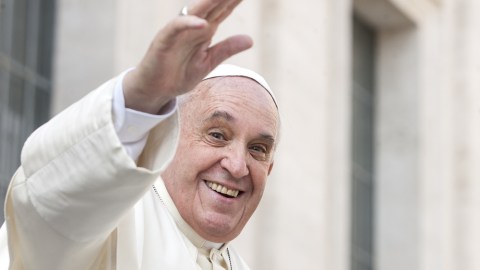What Managers Can Learn from Pope Francis’ Christmas Missive

How often does a CEO directly and publicly address organizational politics? How many compose a list of the worst forms or could even identify them? Yet, a few days ago, rather than an end-of-year rubber chicken dinner and a few good laughs at the expense of others, Pope Francis decided to air Vatican political linens by calling the Curia to task.
The PTA and church choirs have politics, as do charities. So, it’s no surprise that the officials of the Curia – the Vatican’s administrative body — are not exempt. At least some relatively benign forms would be expected. Yet, Pope Francis’ list of “ailments” reveals a deeper “sickness.” The Curia is well into the highly and pathologically political range where, if left to their devices, the inner circle slowly destroys the organization.
From The Secret Handshake, the list of clues to creeping political pathology include many mentioned by the Pope, especially frequent flattery of those in power, abusiveness toward those not possessing it, communication via hint or codes, “poisoning of wells” to ruin careers or gain power, rampant gossip, making most people feel expendable, and hypocrisy.
Here are four “ailments” from Pope Francis’ list of fifteen:
Feeling immortal, immune or indispensible – “A Curia that doesn’t criticize itself, that doesn’t seek to improve itself is a sick body.”
Working without co-ordination, like an orchestra that produces noise – “When the foot tells the hand, ‘I don’t need you’ or the hand tells the head ‘I’m in charge.’”
Having ‘spiritual Alzheimer’s’ – “We see it in the people who have forgotten their encounter with the Lord… who build walls around themselves and become enslaved to the idols that they have built with their own hands.”
Being rivals or boastful – “When one’s appearance, the color of one’s vestments or honorific titles become the primary objective of life.”
Committing the ‘terrorism of gossip’ – “it’s the sickness of cowardly people who, not having the courage to speak directly, talk behind people’s backs.”
It takes courage to stand up to powerful others who can make your life miserable. That does not appear to be Pope Francis’ concern. He knows the mission of his church and has every intention of saving it from the hands of those who have lost sight of why they’re there.
It is one thing, however, to recognize a culture of damaging politics and quite another to actually turn things around. Usually, too many people are vested in the status quo. Members of the Curia would be wise to waste no time in considering the difficult task before them. When politics gets ugly, a top-down change of patterns, people or both is often the only way out.
It’s a tall order for members of a powerful, self-perpetuating inner circle used to having their way. It will be a journey requiring extraordinary leadership. Perhaps it’s enough to only ask this Christmas that the men responsible for guiding millions of souls pause to look deeply into their own.
photo: giulio napolitano/Shutterstock.com




